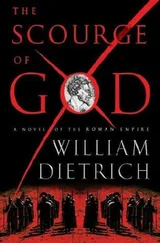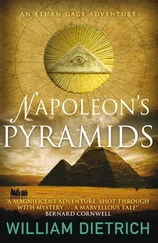William Dietrich - Blood of the Reich
Здесь есть возможность читать онлайн «William Dietrich - Blood of the Reich» весь текст электронной книги совершенно бесплатно (целиком полную версию без сокращений). В некоторых случаях можно слушать аудио, скачать через торрент в формате fb2 и присутствует краткое содержание. Жанр: Триллер, на английском языке. Описание произведения, (предисловие) а так же отзывы посетителей доступны на портале библиотеки ЛибКат.
- Название:Blood of the Reich
- Автор:
- Жанр:
- Год:неизвестен
- ISBN:нет данных
- Рейтинг книги:5 / 5. Голосов: 1
-
Избранное:Добавить в избранное
- Отзывы:
-
Ваша оценка:
- 100
- 1
- 2
- 3
- 4
- 5
Blood of the Reich: краткое содержание, описание и аннотация
Предлагаем к чтению аннотацию, описание, краткое содержание или предисловие (зависит от того, что написал сам автор книги «Blood of the Reich»). Если вы не нашли необходимую информацию о книге — напишите в комментариях, мы постараемся отыскать её.
Blood of the Reich — читать онлайн бесплатно полную книгу (весь текст) целиком
Ниже представлен текст книги, разбитый по страницам. Система сохранения места последней прочитанной страницы, позволяет с удобством читать онлайн бесплатно книгу «Blood of the Reich», без необходимости каждый раз заново искать на чём Вы остановились. Поставьте закладку, и сможете в любой момент перейти на страницу, на которой закончили чтение.
Интервал:
Закладка:
“Why me?”
“That will become clear in due course. In the meantime, I think I’ll tell you a story. You asked last night about the body found in a cabin in America’s Cascade Mountains. Do you want to know whose body that was?”
“Yes.”
“It was Elizabeth Calloway, an aviatrix who flew Benjamin Hood from China to Tibet. Jakob tells me you’ve heard of her.”
“I thought she was my great-grandmother. But I learned in Tibet my great-grandmother was actually a nun named Keyuri Lin. She killed herself and almost killed her baby, my grandmother.”
“Ah. Keyuri is a sad story.”
“But Jake told me the body was my great-grandfather, Benjamin Hood.”
“Jakob told you a lot of things to make happen what is necessary to happen. But now that you’re with us, Rominy, much more can be explained. We can share the truth, so you come to trust me. I want to tell you what happened by telling you about me: what I was, and what I am.”
“How can you be Kurt Raeder?”
“Because I was… changed. Yes, I am more than one hundred years old, even though I have the body of a much younger man.” He glanced at her skepticism. “All right, just younger. I can only assume that such transfiguration was for a purpose, a higher purpose. Dreams that were ashes in 1945 are about to be revived.”
“Of Nazi conquest?”
“Of human transformation.”
She put her hands to her temples. “I wish I was home.”
“You are home. Hear me out.”
Jake turned in the front seat. “We do care about you, Rominy.” He sounded like an insurance salesman betting she wouldn’t die to collect.
She stuck her tongue out at him and he flushed.
“In 1938,” Raeder began, “I led a scientific expedition to Tibet. We’d heard legends of an ancient lost kingdom called Shambhala, and National Socialism took the initiative to investigate. Keyuri was a scholar who had studied old records. She agreed to act as our guide. Working together, we found a hidden valley and an underground city.”
“Where we found the lake.”
“Correct. Unfortunately, just as we were beginning our research, we were interrupted by Benjamin Hood, who came in shooting. He literally destroyed what would have been the greatest archaeological discovery of all time. Keyuri managed to escape with the staff that Jakob has since recovered for us, but my companions were all killed. And as Hood attacked he set off explosions that wrecked the valley.”
“You’re the victim here,” she said drily.
“No, we both wanted to possess Shambhala, but I hoped its secrets would yield a higher purpose, not some cheap exhibit in a dusty New York museum. Hood would have bottled Shambhala, but I wanted to harness it. In any event, there was a machine we believe was related to today’s colliders. It shattered and threw out a blinding light. And that’s the last thing I remember.”
“None of which would have happened if you hadn’t led Nazis to Shambhala.”
“I awoke thrown on the side of a mountain, my body in a state I’d never felt before. You’re familiar with the process of photosynthesis, by which plants absorb and use the sun’s energy? I felt I was absorbing energy, too, but from a new and wondrous source. It’s not just that my flesh tingled, it felt like I was aware of every cell, every capillary, ever corpuscle. I saw the world I was familiar with, and at the same time a different world of shimmering force fields. A veil had been lifted. The blind had been given sight. It’s impossible to accurately describe, but if you think of the aurora borealis, or the galactic clouds of gas photographed by the Hubble Space Telescope, you have some idea of the beauty of what’s all around us, all the time, that we’re ignorant of. I thought I’d died and become a ghost.”
“And in a way, you had,” said Jake.
“Yes. I was still alive, and hungry, and susceptible to heat and cold and all our other environmental burdens, but I’d somehow been infused with new dimensions of power as well. I was enormously confused, of course, but over the decades I’ve come to suspect I’d broken into a part of our universe we can’t yet perceive. We Nazis called it Vril. Modern physicists talk of dark energy and dark matter. We can’t see it, but we can see its effects on the universe we do see. It helps hold galaxies together, and accelerates the expansion of the cosmos. It’s rather like a child recognizing the reality of air, or watching a bending tree from inside a house and realizing it’s windy outside.”
“Kurt had become a Shambhalan,” Jake said. “A new man, like the superman dreamed of by German theorists. The next step in evolution.”
“The master race,” Rominy said.
“That term has been besmirched by history, but yes,” said Raeder. “Hominids became human. Neanderthals gave way to Homo sapiens. Are humans never to evolve again? Or is there a higher destiny? We’d no time to determine where Shambhala came from. Was it simply an act of early human genius that somehow ran afoul of some calamity? Was it a work by space visitors who subsequently left? Was it the product of early gods from other dimensions, whom we’ve squeezed out in our narrow perception of existence? I’ve considered all these things. What if satyrs and dryads and Minotaurs were once real?”
“What if whatever the Shambhalans found killed them?” Rominy asked. “The notes we found talked of bones.”
Raeder shrugged. “Or transformed them, transfigured them, for escape and elevation? If not for Hood, we might have answered such things. Instead I’ve been wandering for decades, waiting for our own science to catch up to that of the Shambhalans. I’ve become a very patient man.”
“Why did my great-grandfather die and you didn’t?”
“I wasn’t at all sure he did die. I awoke to total disorientation. I was no longer at Shambhala. I’d been displaced, like a subatomic particle, to a spot some distance away. It was as if the entire experience had been a dream, or Shambhala had vanished. I wouldn’t learn about the nunnery and Beth Calloway until much later. I wouldn’t hear rumors that the staff Hood stole had survived until much later, when gold and terror persuaded some fallen nuns. I wouldn’t learn about the lake until Jakob here returned from Tibet. So I set off on foot, weary but buoyed by this curious new energy. Knowing the British would likely try to capture and torture me for what I knew, I made my way west through the Hindu Kush, begging, working, and stealing. I survived blizzards and bandits in Afghanistan. I was briefly enslaved in Kandahar. I finally came to Persia. There I contacted German embassy personnel and was eventually flown to Berlin. By then, alas, the war had started and travel back to Tibet became impossible. I’d been exiled like Adam and Eve from Eden.”
“You’re not Adam, and that’s no Eden.”
He paid her no mind.
“No one knew what to make of me. My appearance had changed, not as drastically as you see now, but people responded to me as an oddity, a freak: the Yellow Ghost. I seemed infused with light, and babbling nonsense. My superiors kept me out of the way in obscure research work. Then came Barbarossa.” He paused.
“What’s that?” Rominy finally asked. She’d heard the name but had no idea what it meant.
“The code word for the invasion of the Soviet Union in 1941. Barbarossa was a medieval German hero, a Crusader king, and the world assumed the code word was simply taken from history. A few of us knew better. It was the blood of Frederick Barbarossa that won us admittance to Shambhala, and I was determined to return. It was the one thing that could win the war. Barbarossa was not just to conquer Russia. It was to reopen the way to Tibet.”
“But you didn’t conquer it.”
Читать дальшеИнтервал:
Закладка:
Похожие книги на «Blood of the Reich»
Представляем Вашему вниманию похожие книги на «Blood of the Reich» списком для выбора. Мы отобрали схожую по названию и смыслу литературу в надежде предоставить читателям больше вариантов отыскать новые, интересные, ещё непрочитанные произведения.
Обсуждение, отзывы о книге «Blood of the Reich» и просто собственные мнения читателей. Оставьте ваши комментарии, напишите, что Вы думаете о произведении, его смысле или главных героях. Укажите что конкретно понравилось, а что нет, и почему Вы так считаете.












